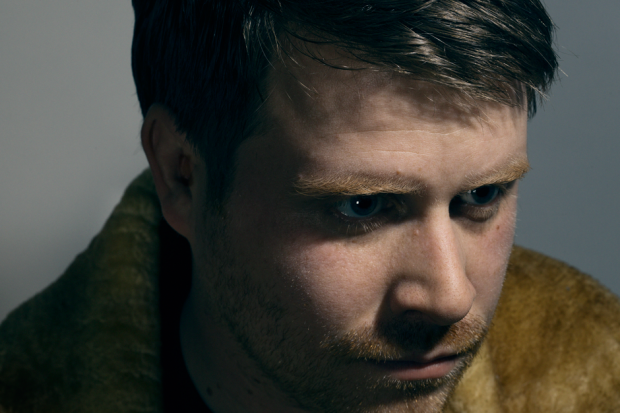Release Date: May 22, 2012
Label: Fat Possum
El-P occupies a singular perch. The Brooklyn rapper-producer has never sounded quite like anyone else, not even in the late 1990s, when the Sasquatch thumps and xylophone flows of his Company Flow crew birthed a generation of similar-minded travelers, spawned the hugely successful independent label Definitive Jux, and briefly transformed the hip-hop underground into a land of no-wave art-jazz and super-scientifical theorizing.
Now, ten years after Def Jukies last ruled the indie circuit (and two years after the label went dormant), the new generation whines about living in the suburbs, doing prescription drugs, and drinking sizzurp while molesting white girls, all while begging Jay-Z to cosign them. Meanwhile, the man who declared himself “independent as fuck” swims against the tide. I mean, what can you even compare Cancer for Cure to… Nine Inch Nails? Over three solo albums, El’s turned into a kind of prog-hop composer, an evolution made clear on opening track “Request Denied,” a three-minute instrumental jam full of analog synths, a drum volley worthy of DJ Shadow’s Entroducing….., heavy guitar riffs, and a Rhodes organ flurry, all before he introduces himself as “a pale kid calamity artist.” While other rappers design songs that grab you in a 30-second playable stream, El-P’s third solo album demands repeat listens, and even then it can seem murky, like an abstract image that refuses to congeal.
Cancer includes guest verses from two artists with whom El-P recently collaborated — Mr. Muthafuckin’ eXquire (last year’s Lost in Translation) and Killer Mike (last week’s R.A.P. Music), the latter a magnificent fusion of Mike’s bare-knuckled screeds on ghetto life and national politics with El’s avant hip-hop. El-P tends to do his best production work in the service of other verbal pugilists — his sci-fi atmospherics for Cannibal Ox’s The Cold Vein may be his most indelible work; and on R.A.P. Music, he girds his trademark noise squalls with a low, funky bass bottom upon which Killer Mike can swagger and suss out his opinions. For better or worse, that bottom is largely missing here, which leaves the music spacey, frenzied, and distorted.
It’s difficult to tell if there was a deliberate decision to eschew clarity, or if the distortion is just a byproduct of El-P’s unique persona. Certainly, Cancer, like nearly all of his work, has New York City’s chaotic, urban squalor as a thematic and sonic backdrop. Back in the day, a favorite parlor game was to guess what El-P was actually saying in his rhymes. The misquotes and misinterpretations borne of his memorable 2001 solo debut Fantastic Damage got so bad that he issued an instrumental version with a lyric booklet. (I freely admit to contributing some errors in a few publications.) He employs a rich vocabulary — one rival once charged that he “rapped the whole dictionary” — and he has a tendency to spit his words so voluminously that they blur together like sheets of rain on a car window. “Stuck on mega lit blocks / Feathered, tarred, and detoxed / From the sox to the cockler, tied up, tethered, and boxed,” he blitzkriegs on “True Story.” But he can be abrasive, too, and when he growls, “little bitch” on “The Full Retard,” it stings, as if your older brother just slapped you awake.
El-P tries to infuse his contradictory impulses, from self-righteousness and Noo Yawk cynicism to mordant introspection and indefatigable optimism, into each of Cancer‘s 13 songs. He constructs “Retard” around a quote by his late friend Camu Tao on “When You’re Going Down” (from Tao’s posthumous album King of Hearts) and rhymes about life in the studio. “You should pump this shit like they do in the future,” goes the chorus, as El chills “at home with a roach hazed, alone or with hoes great.”
On “For My Upstairs Neighbor (Mums the Word),” he tells the cops who interrogate him about a woman who killed her abusive lover that he ain’t no snitch: “Your team of fat blue buddies waddling around and trying to crack the case are better off locating someone else,” he raps. Later, he tells the woman, “When bearing witness to the sound you’re generating every day / Guess it reminded me of something,” an allusion to the domestic violence he suffered as a child, and subsequently described on classic laments like “The Last Good Sleep” and “Stepfather Factory.” El relates this commitment to neighborly, hood unity with the bruised optimism of “$4 Vic/Nothing but You+Me (FTL),” wherein, through his eyes, we’re all beautiful losers who ultimately need one another: “I’ve always had the cancer for the cure,” he rues self-deprecatingly. Dedicating the song to Camu Tao, he adds, “(Till I get there) I’m still living like a four-dollar vic, a lot of trouble for a little bit of win.”
El’s blend of defensive posturing and undisguised sensitivity makes him one of the underground’s most sympathetic heroes. In an era when rappers need the rich man’s blues or a wannabe’s lament to reach their reflective side, El-P is still in touch with the everyman’s worries about dealing with life’s daily horrors and banalities — struggling with addiction on “Works Every Time” to feeling like a perpetual outsider on “The Jig Is Up.” But that struggle is nearly submerged here. It’s instructive to listen to R.A.P. Music and Cancer for Cure back to back, because the former proves that El can still make a straight-up banger with just hammering bass and funky drums. But the cascade of sample overdubs, whining Moog synth lines, melismatic voices, booming guitar feedback, and ghostly choruses (some provided by guests Nick “Diamonds” Thornburn of Islands and Paul Banks of Interpol) on his own record nearly lead to an overcooked whole. Perhaps this avalanche of sound is the inevitable result of a five-year lapse since El-P’s last album, 2007’s I’ll Sleep When You’re Dead, which also suffered from perfectionist tendencies.
R.A.P. and Cancer were released within a week of each other, so it’s natural to compare them. Yet El-P has a more complex vision of himself than Mike, even if El, too, is a rap animal who can trade blows with anyone, from Danny Brown and eXquire on “Oh Hail No” to, in an earlier era, Ghostface Killah and Slug of Atmosphere. Now, on “Tougher Colder Killer,” he describes himself as someone who’s just killed a man, and encompasses all the conflicting emotions, from triumphal brutishness to mortal fear: “He didn’t die hard / In the end, he just grinned and bowed,” he raps. “And it made me want to scream.” Then Mike and Despot show up to close out the track. The two stick to the topic well enough, but neither is sharp enough to betray that sense of unease that El communicates in his opening verse, of knowing that your time on earth is just as short as your prospective victim’s.
More importantly, they just seem out of place on an album where El is flipping styles like a spastic and titling a song “The Full Retard.” He’s the type of man who’s fully immersed in the rap scene — perhaps even something of an elder statesman — and yet remains a solitary presence whose universe, as depicted here, seems deliberately imposing. “Better leave the lion alone / Do not pet him,” he warns. But it’s worth the risk.





